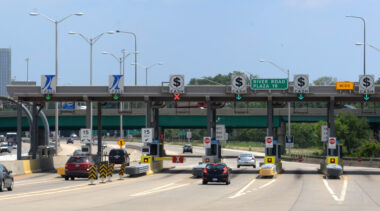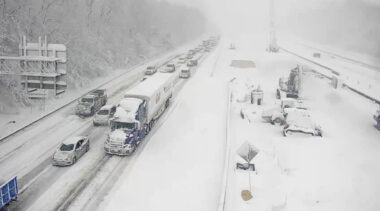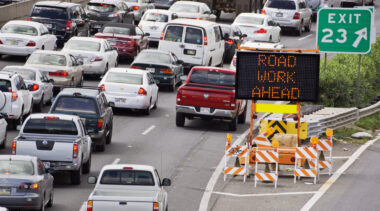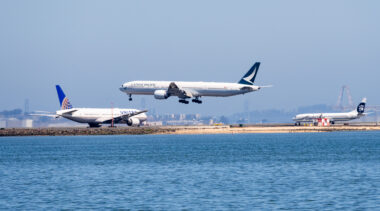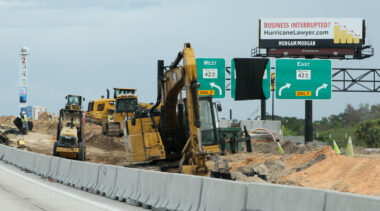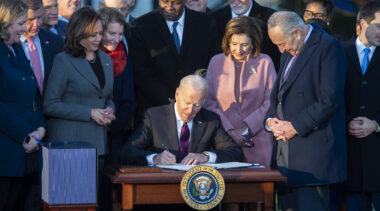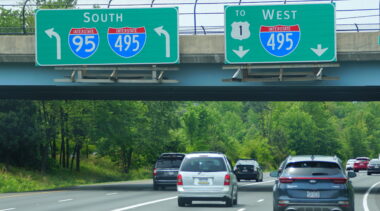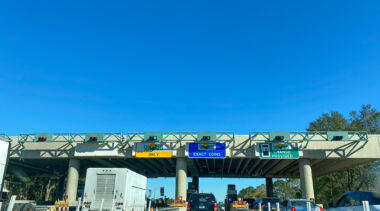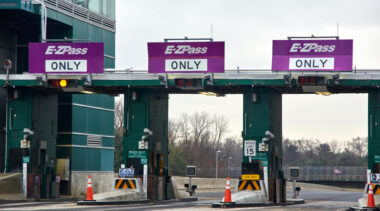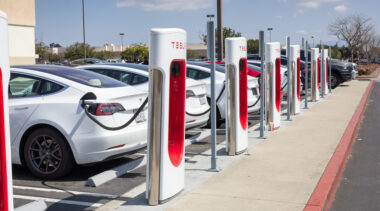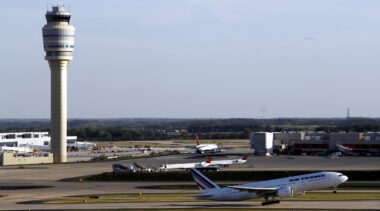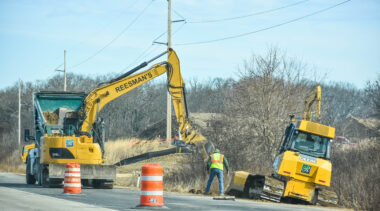Robert Poole is director of transportation policy and Searle Freedom Trust Transportation Fellow at Reason Foundation.
Poole, an MIT-trained engineer, advised the Ronald Reagan, George H.W. Bush, Clinton, and George W. Bush administrations on infrastructure issues.
Surface Transportation
In the field of surface transportation, Poole has advised the Federal Highway Administration, the Federal Transit Administration, the White House Office of Policy Development, National Economic Council, Government Accountability Office, and state DOTs in numerous states.
Poole's 1988 policy paper proposing privately financed toll lanes to relieve congestion directly inspired California's landmark private tollway law (AB 680), which authorized four pilot toll projects including the successful 91 Express Lanes in Orange County. More than 20 other states and the federal government have since enacted similar public-private partnership legislation. In 1993, Poole oversaw a study that coined the term HOT (high-occupancy toll) Lanes, a term which has become widely accepted since.
California Gov. Pete Wilson appointed Poole to the California's Commission on Transportation Investment and he also served on the Caltrans Privatization Advisory Steering Committee, where he helped oversee the implementation of AB 680.
From 2003 to 2005, he was a member of the Transportation Research Board's special committee on the long-term viability of the fuel tax for highway finance. In 2008 he served as a member of the Texas Study Committee on Private Participation in Toll Roads, appointed by Gov. Rick Perry. In 2009, he was a member of an Expert Review Panel for Washington State DOT, advising on a $1.5 billion toll mega-project. In 2010, he was a member of the transportation transition team for Florida's Governor-elect Rick Scott. He is a member of two TRB standing committees: Congestion Pricing and Managed Lanes.
Aviation
Poole is a member of the Government Accountability Office's National Aviation Studies Advisory Panel and he has testified before the House and Senate's aviation subcommittees on numerous occasions. Following the terrorist attacks of Sept. 11, 2001, Poole consulted the White House Domestic Policy Council and the leadership of the House Transportation & Infrastructure Committee.
He has also advised the Federal Aviation Administration, Office of the Secretary of Transportation, White House Office of Policy Development, National Performance Review, National Economic Council, and the National Civil Aviation Review Commission on aviation issues. Poole is a member of the Critical Infrastructure Council of the Los Angeles Economic Development Corporation and of the Air Traffic Control Association.
Poole was among the first to propose the commercialization of the U.S. air traffic control system, and his work in this field has helped shape proposals for a U.S. air traffic control corporation. A version of his corporation concept was implemented in Canada in 1996 and was more recently endorsed by several former top FAA administrators.
Poole's studies also launched a national debate on airport privatization in the United States. He advised both the FAA and local officials during the 1989-90 controversy over the proposed privatization of Albany (NY) Airport. His policy research on this issue helped inspire Congress' 1996 enactment of the Airport Privatization Pilot Program and the privatization of Indianapolis' airport management under Mayor Steve Goldsmith.
General Background
Robert Poole co-founded the Reason Foundation with Manny Klausner and Tibor Machan in 1978, and served as its president and CEO from then until the end of 2000. He was a member of the Bush-Cheney transition team in 2000. Over the years, he has advised the Reagan, George H.W. Bush, Clinton, and George W. Bush administrations on privatization and transportation policy.
Poole is credited as the first person to use the term "privatization" to refer to the contracting-out of public services and is the author of the first-ever book on privatization, Cutting Back City Hall, published by Universe Books in 1980. He is also editor of the books Instead of Regulation: Alternatives to Federal Regulatory Agencies (Lexington Books, 1981), Defending a Free Society (Lexington Books, 1984), and Unnatural Monopolies (Lexington Books, 1985). He also co-edited the book Free Minds & Free Markets: 25 Years of Reason (Pacific Research Institute, 1993).
Poole has written hundreds of articles, papers, and policy studies on privatization and transportation issues. His popular writings have appeared in national newspapers, including The New York Times, The Wall Street Journal, USA Today, Forbes, and numerous other publications. He has also been a guest on network television programs such as Good Morning America, NBC's Nightly News, ABC's World News Tonight, and the CBS Evening News. Poole writes a monthly column on transportation issues for Public Works Financing.
Poole earned his B.S. and M.S. in mechanical engineering at Massachusetts Institute of Technology (MIT) and did graduate work in operations research at New York University.
-
A guide to customer-friendly tolling policies to help states rebuild highways and bridges
How states can implement customer-friendly tolling policies that address worries like double taxation and create genuine value for drivers and truckers.
-
FAA and FCC failures played key roles 5G rollout problems
Full cooperation between aviation safety regulators and telecommunications regulators enabled 5G towers to be placed with adequate distance from runways in Europe.
-
Aviation Policy News: Institutional failure on 5G and aviation, runway excursions, and more
Plus: Biden administration's rulemaking, the FAA’s Metroplex nears completion, and more.
-
The bipartisan infrastructure law is likely to drive up costs and restrict highway expansion in growing states
The law could also undermine the Biden administration’s own climate change priorities.
-
I-95 fiasco shows lack of proper stewardship is an ongoing problem for highways
Highways should be understood and managed as utility businesses, comparable to electric, gas, water, and telecommunications utilities.
-
Surface Transportation News: FHWA vs. bipartisan infrastructure bill, traffic congestion, and more
Plus: Beware the “induced demand” calculator, Amtrak expansion and freight rail, and more.
-
Aviation Policy News: Vertiports for regional air mobility, Congress oblivious to changing airline competition, and more
Plus: Rethinking airport charges and regulation, from bad to worse on 5G and U.S. aviation, and more.
-
Getting to ‘yes’ on toll-financed Interstate reconstruction
Customer-friendly tolling is the trucking industry's least-bad alternative—and perhaps the only feasible alternative —for funding the needed rebuilding of Interstate highways.
-
Surface Transportation News: Bipartisan infrastructure bill, ranking state highway systems, and more
Plus: Suspending gas taxes, electric vehicle charging stations, threats to Uber and Lyft, and more.
-
Maryland P3 express lanes project will help roadways, taxpayers
Maryland's P3 project will be financed based on tolls that commuters choose to pay, and the risk of insufficient traffic and revenue will be borne by the P3 company, not Maryland taxpayers.
-
Examining the causes of cost overruns on rail and road projects
The average rail project cost 40% more than estimated and its benefits were only 66% of what was projected.
-
Aviation Policy News: Bipartisan infrastructure bill and airports, FAA vs. FCC on 5G, and more
Plus: Sydney Airport negotiating $18 billion sale, aviation and climate change, post-COP-26, and more.
-
Surface Transportation News: Dealing with ‘double taxation’ on tolled Interstates, the supply chain mess, and more
Plus: Trucking study urges EVs to pay by the kilowatt-hour, assessing the future of urban-area parking, and more.
-
Fuel tax rebates for newly tolled Interstates: A quantitative assessment
The purpose of this policy study is to assess the feasibility of providing fuel tax rebates for miles driven on reconstructed Interstates financed by toll revenues.
-
Proposed electric vehicles tax credit prioritizes labor unions over carbon reduction goals
By trying to push buyers to union-assembled cars, Congress risks slowing the shift to electric vehicles and undercutting the carbon reduction goals it is trying to achieve.
-
Aviation Policy News: Airport emissions and delay management tool, air traffic control tower debacle, and more
Plus: A tale of two airport surveys, increased air safety over the North Atlantic, and more.
-
Surface Transportation News: Rhetorical war on freeway expansion, transit’s near-term future, and more
Plus: Misinformation on proposed per-mile charge, trucks as leading candidate for automation, and more.

